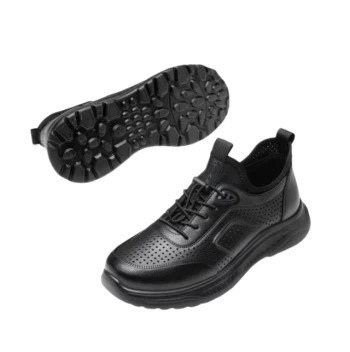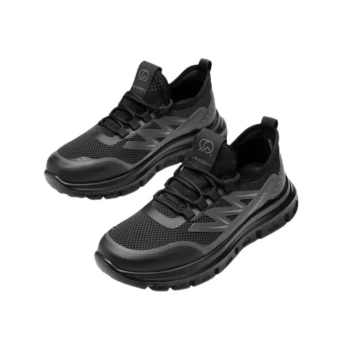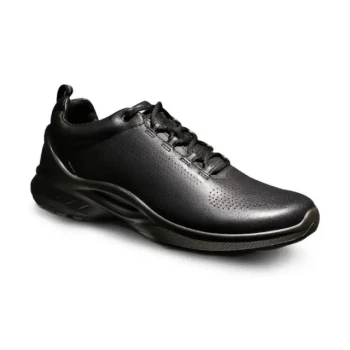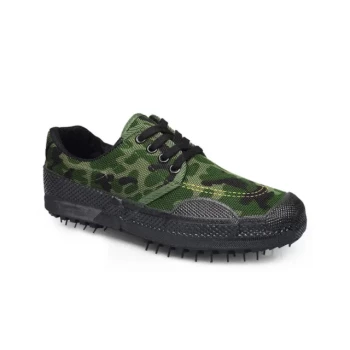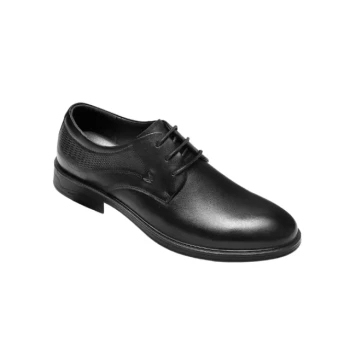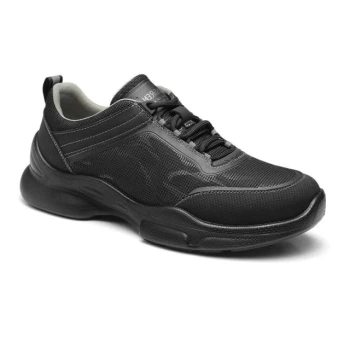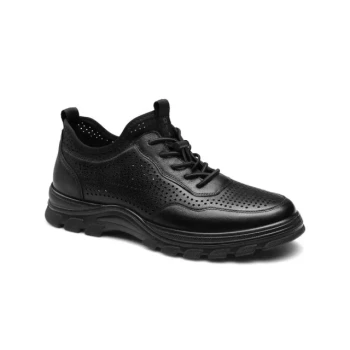At their core, fashion sneakers are recommended for business casual environments because they masterfully blend professional polish with modern comfort. They offer a versatile and stylish alternative to traditional dress shoes, reflecting a contemporary approach to workplace attire without sacrificing a sharp appearance.
The challenge isn't whether sneakers are acceptable, but which ones are. Success lies in choosing a sneaker that acts like a dress shoe—understated, high-quality, and clean—rather than an athletic shoe designed for performance.
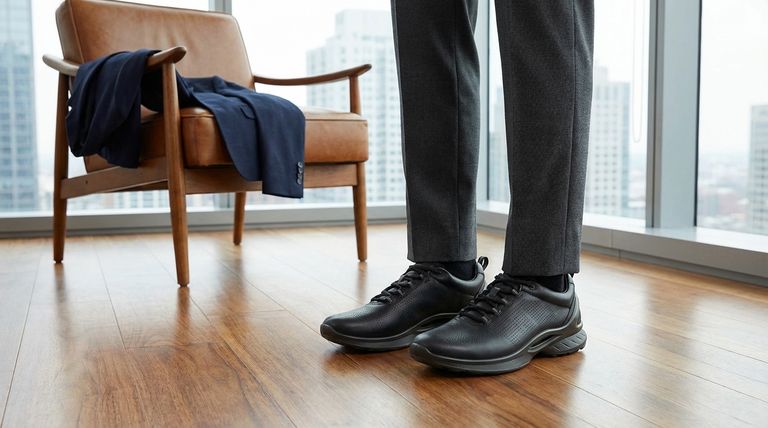
The Shift Towards Modern Professionalism
The acceptance of sneakers in the office signals a broader evolution in what it means to look professional. Workplaces are increasingly valuing a balance of style, comfort, and personal expression.
Redefining Workplace Attire
As office standards have relaxed, the definition of "business casual" has expanded. The focus has shifted from rigid rules to a more flexible approach that prioritizes looking put-together and capable.
The Appeal of All-Day Comfort
Sneakers provide ergonomic support, cushioned insoles, and breathable materials that traditional dress shoes often lack. This allows for comfort throughout the workday, from the commute to late meetings.
Versatility for Modern Life
A key advantage is adaptability. The right pair of fashion sneakers can transition seamlessly from a client meeting to a casual dinner, simplifying your wardrobe and daily routine.
What Defines a "Business Casual" Sneaker?
Not all sneakers are created equal. The distinction between a gym shoe and an office-appropriate sneaker comes down to a few critical details.
Material is Paramount
The material signals intent. Opt for elevated materials like full-grain leather, suede, or premium canvas. Avoid the breathable mesh and synthetic plastics common in running or athletic shoes.
Design and Silhouette
Look for a clean, simple, and low-profile design. A business casual sneaker should have a sleek silhouette, avoiding the chunky soles or aggressive styling of performance footwear.
A Neutral Color Palette
Stick to solid, neutral colors like black, brown, navy, gray, or white. These colors are versatile and integrate easily into a professional wardrobe, ensuring your shoes complement your outfit rather than dominate it.
Minimal to No Branding
Loud logos and prominent branding read as overly casual. The most professional options have minimal or no visible branding, keeping the focus on the clean design and quality materials.
Understanding the Trade-offs and Pitfalls
While fashion sneakers are widely accepted, navigating their use requires careful judgment to avoid looking unprofessional.
The Risk of a "Formality Clash"
The biggest danger is creating a clash between your shoes and the rest of your outfit. Pairing sleek sneakers with well-cut trousers works; pairing them with a formal suit can be a significant misstep unless your industry is highly creative.
The "White Sneaker" Debate
The debate over white sneakers stems from confusion between styles. A minimalist, low-profile white leather sneaker is a modern business casual staple. However, a bright white, chunky, or athletic-style sneaker is almost always too casual for the office.
Condition is Non-Negotiable
Your sneakers must be spotless and well-maintained. Any scuffs, dirt, or signs of wear will immediately undermine your professional appearance. They require more diligent care than typical dress shoes.
Context Remains King
Always consider your specific workplace culture. In highly conservative fields like law or finance, traditional footwear is often still the safest choice. When in doubt, observe what senior colleagues are wearing.
Making the Right Choice for Your Environment
Your choice of sneaker should be directly informed by your professional setting and goals.
- If your workplace is highly conservative: Opt for a sleek, low-profile sneaker in dark leather, such as black or dark brown, that closely mimics a traditional dress shoe.
- If your workplace is a standard business casual setting: A minimalist leather sneaker in white, gray, or navy is a safe, stylish, and versatile choice.
- If your primary goal is maximum comfort without sacrificing style: Prioritize sneakers known for their supportive construction, but ensure the design remains simple, the materials are premium, and the color is neutral.
Ultimately, the right sneaker enhances your professional look by demonstrating a modern sensibility and an attention to detail.
Summary Table:
| Feature | Recommendation for a Business Casual Sneaker |
|---|---|
| Material | Full-grain leather, suede, or premium canvas |
| Design | Clean, simple, and low-profile silhouette |
| Color | Neutral palette (black, brown, navy, gray, white) |
| Branding | Minimal or no visible logos |
| Condition | Must be spotless and well-maintained |
Ready to Elevate Your Business Casual Footwear Collection?
As a large-scale manufacturer, 3515 produces a comprehensive range of footwear for distributors, brand owners, and bulk clients. Our production capabilities encompass all types of shoes and boots, including the perfect line of sleek, professional sneakers designed for the modern workplace. We combine style, comfort, and quality to help you meet the growing demand for business casual footwear.
Contact 3515 today to discuss your manufacturing needs and discover how we can be your trusted partner in footwear.
Visual Guide
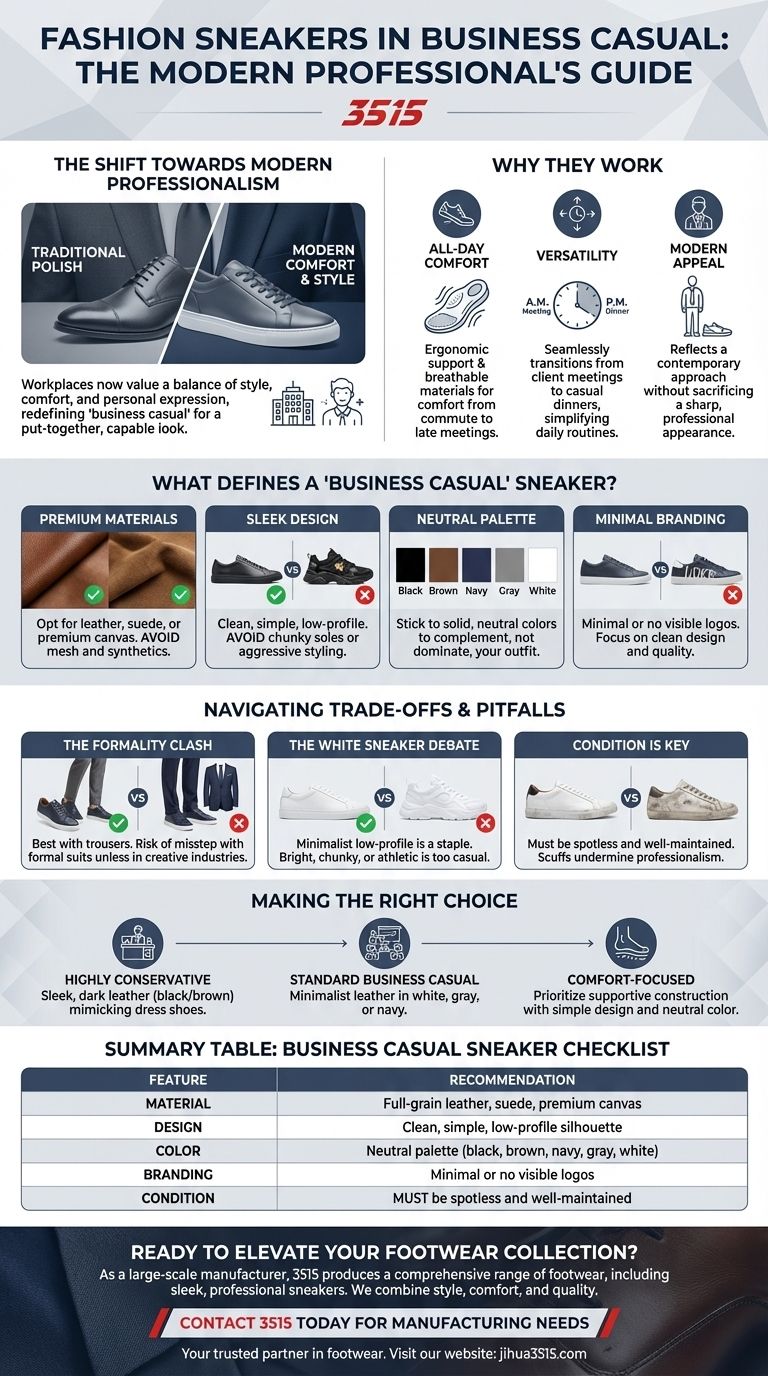
Related Products
- Wholesale Comfortable Business Casual Shoes Custom Manufacturing
- Custom Manufactured Air Cushion Leather Business Shoes for Wholesale
- Wholesale Modern Business Shoes with Dial Closure System for Bulk Orders
- Wholesale Smart Casual Sneakers with Dial Closure | Factory Direct Manufacturing
- Wholesale Modern Comfort Shoes with Dial Closure for Private Label & Bulk Orders
People Also Ask
- What indicates a perfect skate shoe fit? Unlock Total Board Control and Comfort
- What are the key design features of a true skate shoe? A Guide to Performance, Durability & Safety
- How does laser micro-machining enhance the output performance of triboelectric sensors? Boost Smart Footwear Sensitivity
- Are sneakers appropriate for business casual settings? A Guide to Modern Office Footwear
- How can professional sneakers assist in the transition to high-impact exercise? Boost Your Physical Recovery Safely
- What is the function of smart shoes with IMU in Parkinson's disease? Enhancing Gait Monitoring and Patient Care
- How have sneaker brands incorporated camouflage patterns? From Military to Streetwear Style
- What are the main features of walking sneakers designed for work? Essential Comfort & Safety for All-Day Wear












